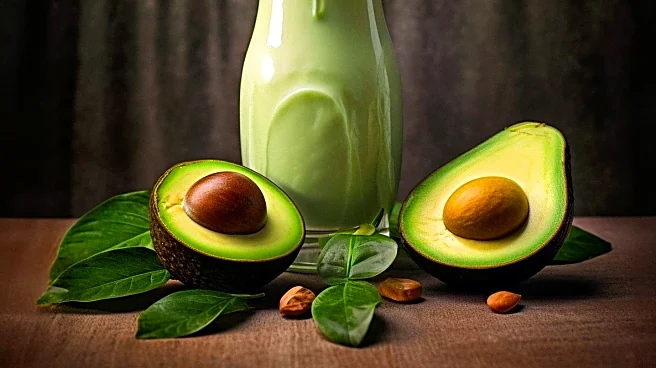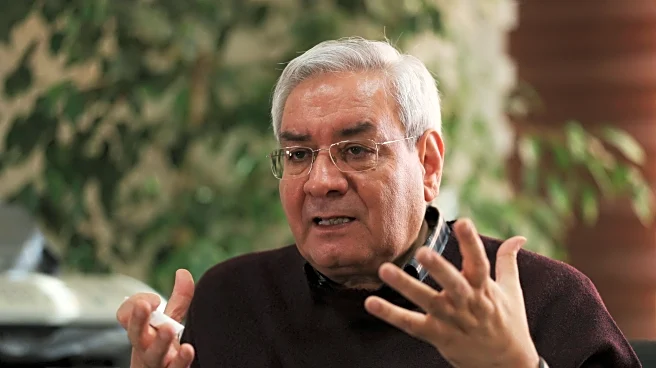What's Happening?
A Washington Post-KFF poll has revealed the partisan nature of support for Robert F. Kennedy Jr.'s 'Make America Healthy Again' (MAHA) movement. The poll indicates that Republican parents are more likely to support the movement compared to Democrats and
independents. The MAHA movement, which targets processed foods, dyes, and added sugars, has gained traction among those identifying with the 'Make America Great Again' ideology. Despite the partisan divide, the movement's food policy priorities are broadly popular across different political affiliations.
Why It's Important?
The MAHA movement's focus on health and nutrition reflects growing concerns about the impact of processed foods on public health. The partisan support highlights the intersection of health initiatives with political identity, potentially influencing public policy and consumer behavior. As the movement gains momentum, it could drive changes in food industry practices and government regulations, affecting the availability and quality of food products nationwide.
What's Next?
The MAHA movement may lead to increased advocacy for healthier food options and stricter regulations on food additives. Stakeholders, including health organizations and policymakers, might engage in discussions to address the movement's goals and implement changes in food policy. The partisan nature of support suggests potential political debates and legislative efforts to align health initiatives with broader political agendas.
Beyond the Headlines
The MAHA movement raises questions about the role of political identity in shaping health-related initiatives. The blending of health advocacy with political branding could influence public perception and engagement with health policies. The movement's focus on individual responsibility for health may also prompt discussions on accessibility and affordability of healthier food options.















